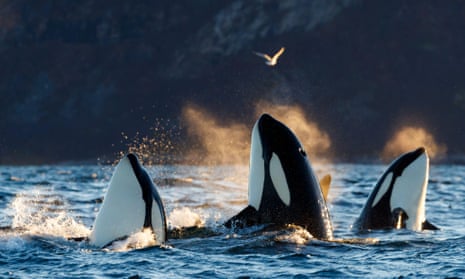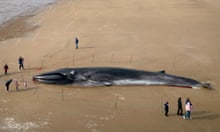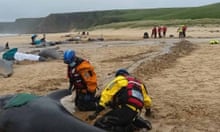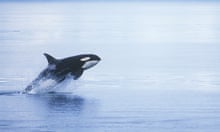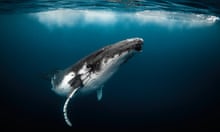Scientists have published findings confirming that orcas hunt great white sharks, after the marine mammal was captured on camera killing one of the world’s largest sea predators.
A pod of killer whales is seen chasing sharks during an hour-long pursuit off Mossel Bay, a port town in the southern Western Cape province, in helicopter and drone footage that informed a scientific study released this week.
Alison Towner, a shark scientist at Marine Dynamics Academy in Gansbaai, South Africa and lead author of the study, said: “This behaviour has never been witnessed in detail before, and certainly never from the air.”
One clip from the footage, taken in May, shows five orcas chasing and killing a great white and scientists believe three more were mauled to death during the hunt.
Simon Elwen, a marine mammal specialist and study co-author, said: “Killer whales are highly intelligent and social animals. Their group hunting methods make them incredibly effective predators.”
Orcas, the ocean’s apex predator, have been known to prey on other shark species, but evidence of attacks on great whites was previously limited. The study did not look at the reasons behind the behaviour.
One of the whales was known to have attacked great white sharks before, but the other four were not. The authors said this suggested that the practice was spreading, with earlier studies having established that the black-and-white animals can learn from one other through “cultural transmission”.
Sharks disappeared from the area after the attack, with only one great white spotted in the next 45 days, according to the paper, which was published in the journal Ecology. The authors say this confirms sharks have a flight response and could have broader implications.
In earlier observed cases, the animals ended up abandoning former key habitats, with consequences for the ecosystem and shark-related tourism, said Alison Kock, a marine biologist with South African National Parks.
